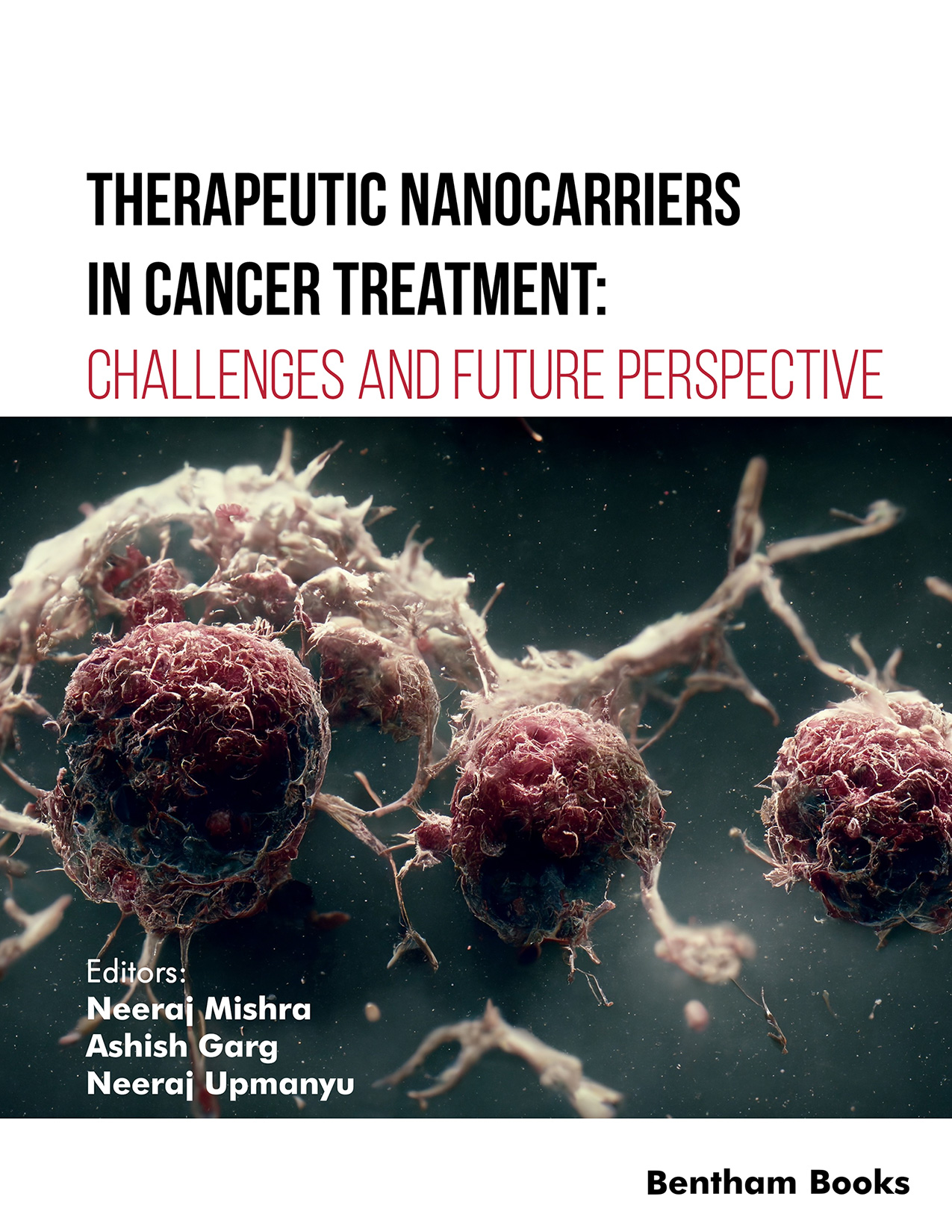Nano-carriers are an innovative and promising alternative technology for cancer
treatment, which show many advantages over conventional cancer therapies. It
provides new opportunities for early detection, improved treatment, and diagnosis of
cancer. Currently, available cancer treatments include radiation therapy, targeted
therapy, surgery, chemotherapy, radiation therapy, immunotherapy, and some existing
symptomatic treatments. The present challenges faced for the treatment of cancer are
mainly due to the heterogenicity of some cancers, drug resistance, late diagnosis,
few treatment advances for early-stage cancer, non-selectivity of drugs towards
cancer cells leading to side effects and many more, which are still in the dark. The
development of such ligand decorated nano- carriers modifies the anticancer drug
accumulation and distribution, thus producing the best possible therapeutic effects
to the cancerous cells that will finally reduce the dose and dosing frequency of the
anticancer drug. Nano-drug delivery by various drug delivery systems has emerged as
a commanding technology for the treatment of various cancers. Nanotechnology
provides new rays of hope for the effective treatment of different types of cancer.
Nanotechnology-based drug delivery carriers (NCs), such as nanoparticles, liposomes,
dendrimers, polyplexes, solid lipid nano-carriers and many more, offer treatment
strategies due to their ability to target cancer cells.
Nano-carriers are used for targeted drug delivery of medicaments to the desired site
along with their surface modification which has shown their significance in the
management of cancer. The book contains thirteen chapters, including an introduction
to cancer biology, nanotechnology for cancer treatment: an introduction, potential
approaches for delivery of surface decorated nano-carriers in the management of
carcinoma, the importance of surface-modified nano-carriers in the management of
cancer, Importance of nano-carriers in prostate cancer, Future prospects and
challenges in toxicology related to nanoparticles, Nano-carriers and its role in the
treatment of breast cancer, the importance of surface-modified nano-carriers in the
management of cervical cancer, the importance of nano-carriers in colon cancer,
nano-carriers in treatment of head and neck cancer, accounts on nano-carrier system
for diagnosis purpose, cancer drug products containing nanomaterials: key regulatory
issues and future prospects and challenges in treatment of cancer. Each chapter
discusses an introduction to the cancer biology role of nanotechnology, potential
approaches for delivery of surface decorated nano-carriers in the management of
carcinoma, and cancer drug products containing nanomaterials: key regulatory issues
and future prospects and challenges in the treatment of cancer.
We hope the book shall be a useful compilation for undergraduate, postgraduate, and
doctoral students and researchers working in cancer and drug delivery research,
research and development, and national research institutes. We hope to receive
feedback, suggestions, and inputs from researchers and students that will help
improve the next edition of the book.
ACKNOWLEDGMENTS
I am thankful to my Honorable Vice Chancellor Lt. Gen. V. K. Sharma, AVSM
(Retd.), and Pro-Vice Chancellor Prof. (Dr.) M. P. Kaushik, Amity University
Madhya Pradesh, Gwalior, India, for his continuous encouragement. I am very also
grateful to Dr. S. Mohana Lakshmi, Director, Amity Institute of Pharmacy, Amity
University Madhya Pradesh, Gwalior, for his support during the writing of this
book. Finally, I would like to express my wholehearted appreciation to the
faculty members and students of Amity Institute of Pharmacy, Amity University,
Madhya Pradesh, Gwalior.
Neeraj Mishra
Amity Institute of Pharmacy,
Amity
University of Madhya Pradesh
Gwalior (M.P.)
India
Ashish
Garg
Department of P. G. Studies and Research in Chemistry and
Pharmacy
Rani Durgavati University
Jabalpur (M.P.)
India
Neeraj
Upmanyu
Sagar Institute of Research & Technology-Pharmacy &
Pro Vice-Chancellor, Sage University
Bhopal
India

